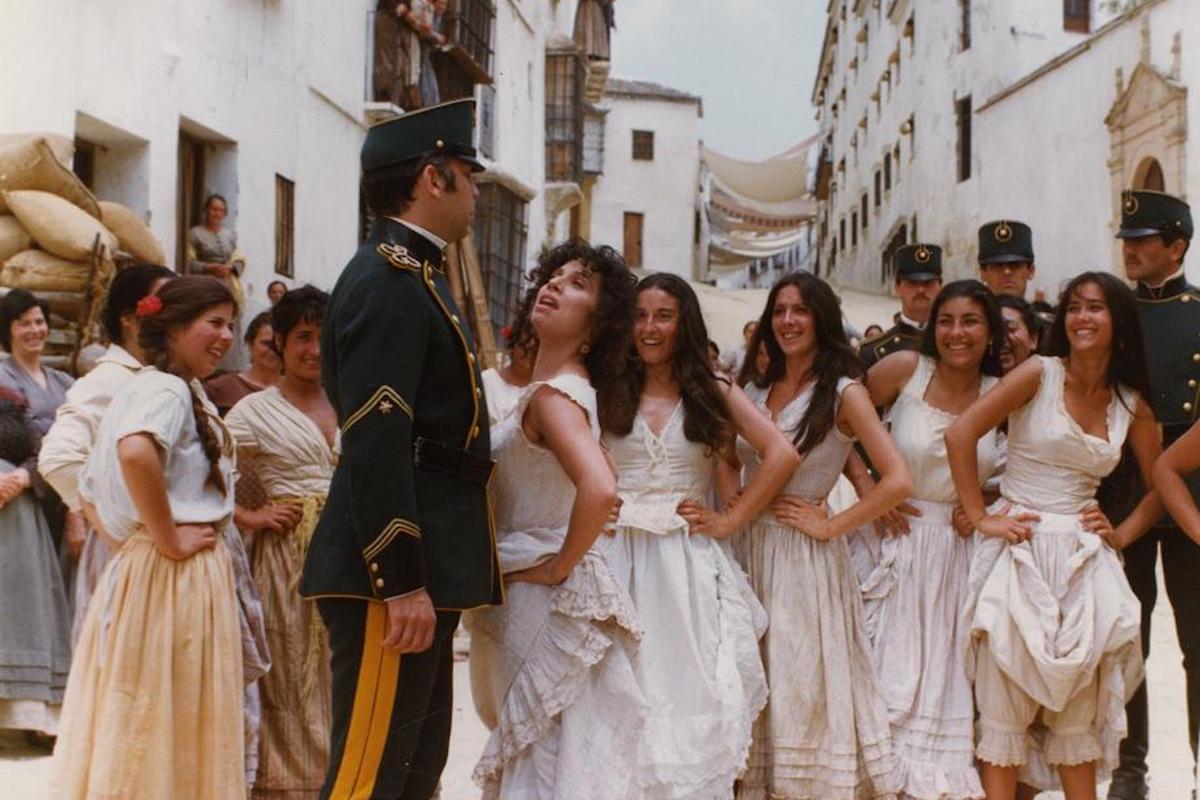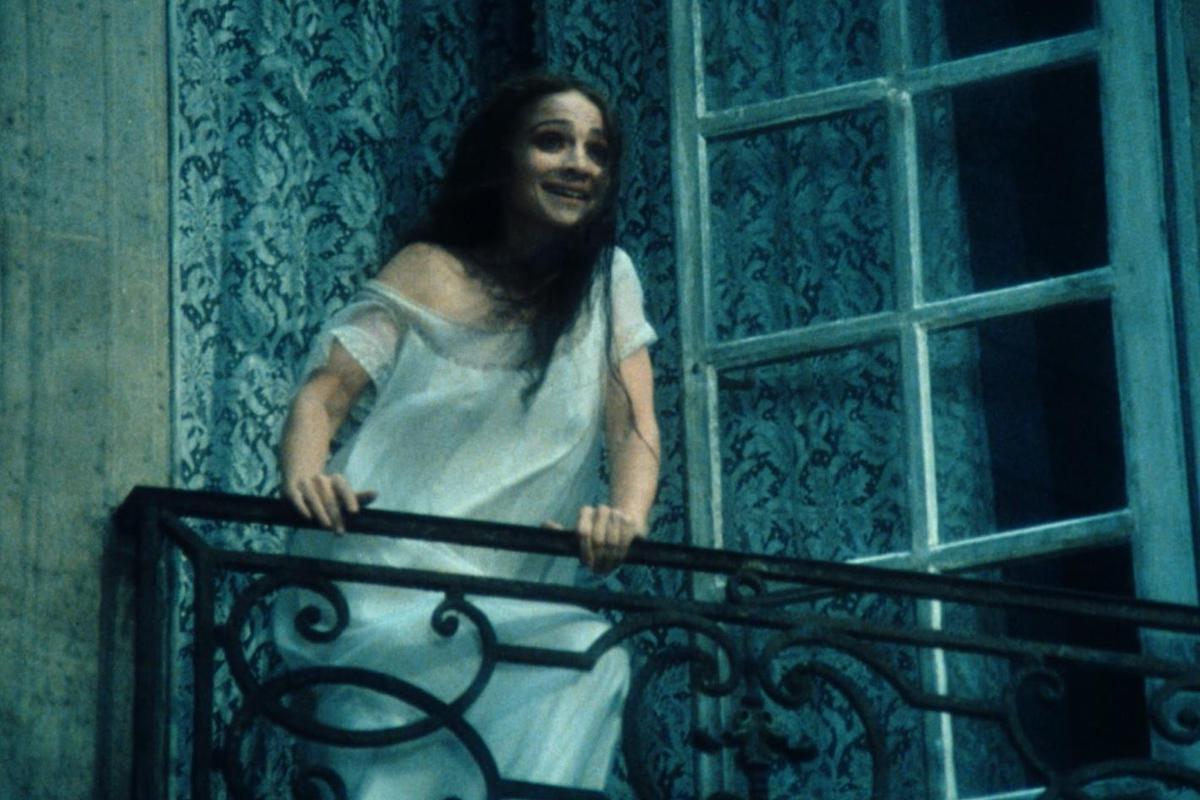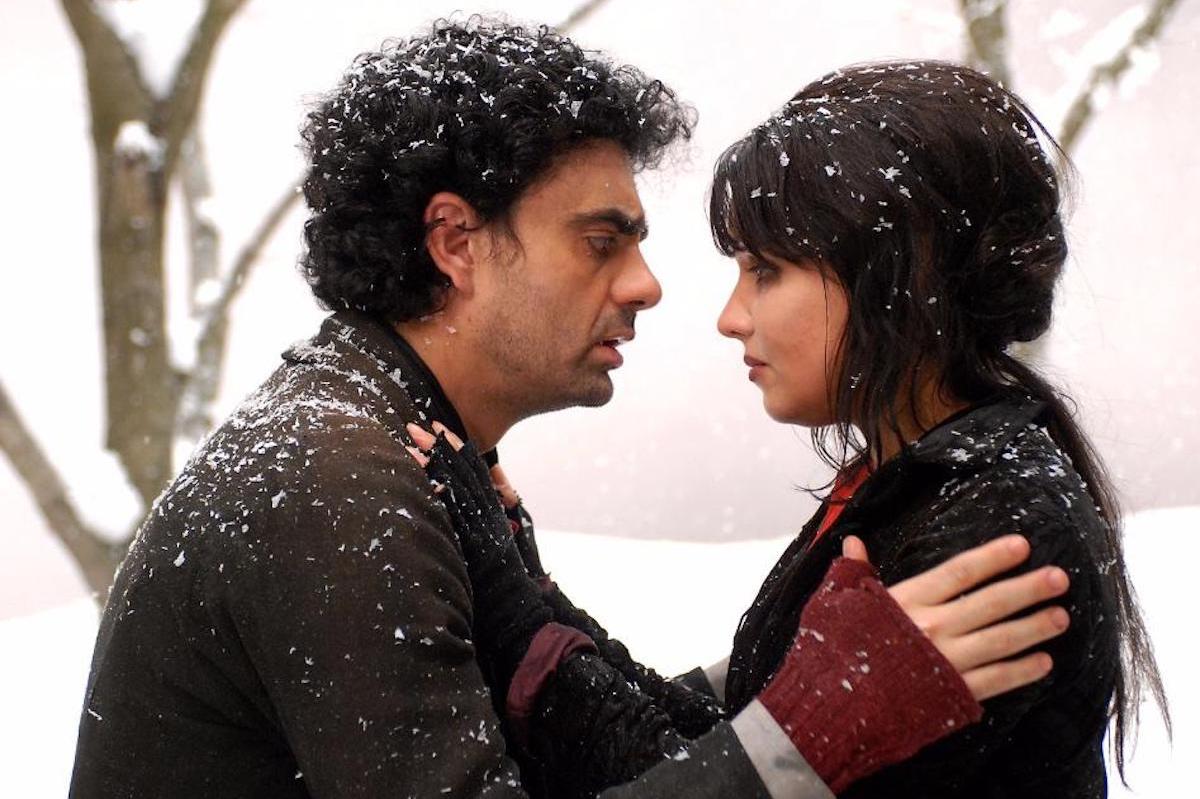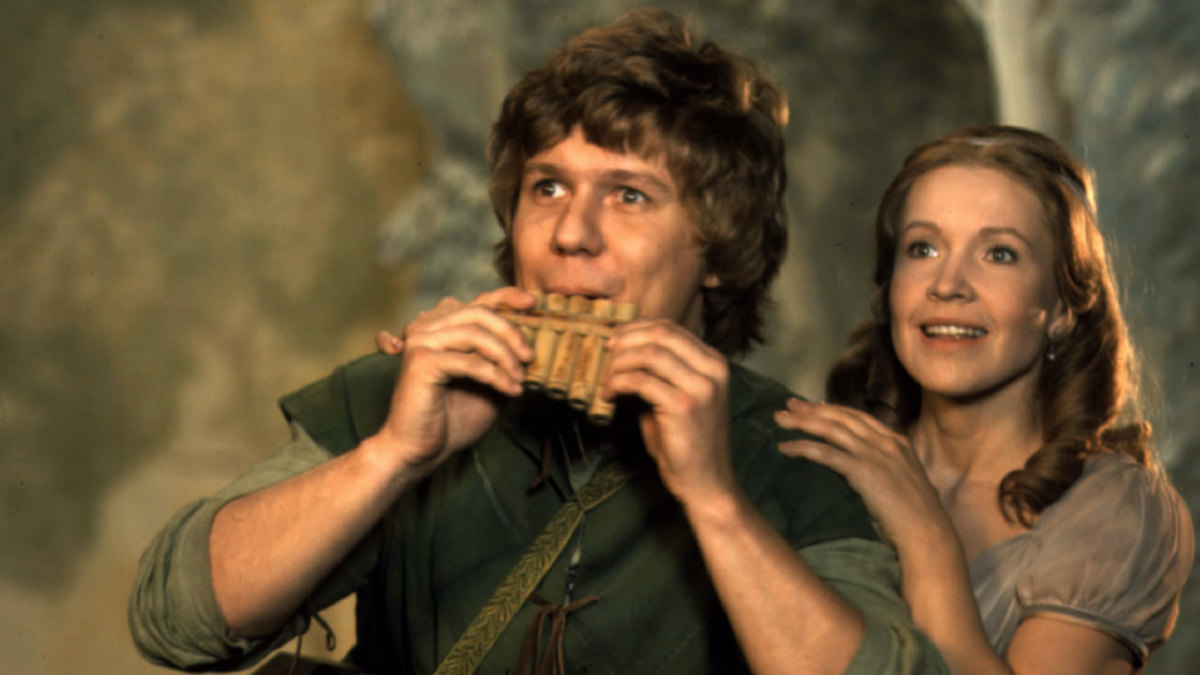With a new screen version of Bizet’s Carmen now in cinemas, here’s our pick of the best opera films on film you might want to catch up with later.
Carmen (1984)
Director: Francesco Rosi
Cast: Julia Migenes-Johnson, Plácido Domingo, Ruggero Raimondi, Faith Esham
Conductor: Lorin Maazel
Orchestra: Orchestre National de France

Francesco Rosi’s Carmen
Filmed on location in the picturesque surroundings of Seville, Italian film director Francesco Rosi’s only foray into opera is a cinematographic treat. Plácido Domingo provides ample evidence of his renowned acting skills and sings an ardent Don José, replete with all the vocal colours needed to chart his character’s path towards self-destruction (no, it’s not all Carmen’s fault!).
Migenes-Johnson’s portrayal of the seductive gypsy is dramatically convincing, though perhaps less subtle in its musical characterisation. This Carmen is worth a watch for the picturesque backdrop and Domingo’s insightful performance of one of his signature roles.
Le Nozze di Figaro (1975)
Director: Jean-Pierre Ponnelle
Cast: Hermann Prey, Kiri Te Kanawa, Mirella Freni, Dietrich Fischer-Dieskau
Conductor: Karl Böhm
Orchestra: Vienna Philharmonic
It’s pretty tough to go wrong when you have this much talent and skill in one production.
Ponnelle’s period staging is charming, moving, funny – and sexy in its own way. Kiri Te Kanawa is not known as a great actress, but here she gives a sincere performance and sings the Countess with delicacy and expressive depth.
Fischer-Dieskau’s aristocratic sound and demeanour are perfectly suited to the restless Count Almaviva, and the angelic Mirella Freni delivers a full-blooded Susanna (the characters are Spanish, after all!).
Böhm’s tempi nearly cause the Vienna Philharmonic to grind to a halt at times, but the lushness of their sound and Ponelle’s dramatic inventiveness make up for it.
La Traviata (1982)
Director: Franco Zeffirelli
Cast: Teresa Stratas, Plácido Domingo, Cornell Macneil
Conductor: James Levine
Orchestra: Metropolitan Opera

Teresa Stratas in Franco Zeffirelli’s La Traviata
Here we get two of the best singing actors in recent history, directed by one of the most acclaimed opera directors and designers ever, performing one of the best-loved operas in the repertoire. Zeffirelli’s obsessive quest for truth and beauty results in sets and costumes so lavish we can overlook some questionable cuts to the score and libretto. He also brings out the best in Stratas and Domingo as actors: both give richly detailed portrayals, even if they are not perfectly suited to the roles vocally.
Death in Venice (1981)
Director: Tony Palmer
Cast: Robert Gard, John Shirley-Quirk, James Bowman
Conductor: Stuart Bedford
Orchestra: English Chamber Orchestra
The quality of Tony Palmer’s massive body of work is quite variable, but this version of Britten’s final masterpiece rates as one of his best films. He digs deep into the opera’s challenging psychological themes, with a multifaceted Venice as visual backdrop. Be prepared to see lots of gondolas, though. Australian Robert Gard is a tormented and sympathetic Aschenbach, if a bit vocally dry at times, and John Shirley-Quirk delivers a musically and dramatically versatile performance of the baritone roles. Highly recommended for lovers of Britten and Tony Palmer. If you’re new to Britten, however, start with the 1966 BBC Billy Budd instead!
La Bohème (2009)
Director: Robert Dornhelm
Cast: Anna Netrebko, Rolando Villazón, Nicole Cabell, Stéphane Degout
Conductor: Bertrand de Billy
Orchestra: Bavarian Radio Symphony

Rolando Villazón and Anna Netrebko in La Bohème
We all need a little Bohème in our lives! Academy-Award nominee Robert Dornhelm stays out of Puccini’s way most of the time, evoking a world where youthful love struggles against a stark reality. It proves to be a perfect vehicle for the star couple of Netrebko and Villazón, whose enchanting chemistry transfers well from stage to screen.
If you can manage to ignore the eyebrows and the often exaggerated gestures, Villazón captures an ardent, poetic Rodolfo who finally finds the girl he’s been dreaming of – the beautiful, unassuming and passionate Mimì of Netrebko. Overall, the finest opera film of the last two decades.
Bluebeard’s Castle (1981)
Director: Miklós Szinetár
Cast: Kolos Kováts and Sylvia Sass
Conductor: Sir Georg Solti
Orchestra: London Philharmonic
This visually stunning film by Hungarian director Miklós Szinetár adds emotional depth to Bartók’s intensely psychological score. Hungarian bass-baritone Kolos Kováts is a stately Bluebeard, but also conveys the tortured Duke’s yearning for affection (and who wouldn’t get lonely in that creepy castle?) through a subtle approach to his vocal line. Judith’s naïve yet stubborn nature is expressed convincingly by the detailed acting and rich vocal palette of Sylvia Sass. Solti conducts the London Phil in one of the most passionate recordings of Bartók’s only opera.
Elektra (1981)
Director: Götz Friedrich
Cast: Leonie Rysanek, Caterina Ligendza, Astrid Varnay, Dietrich Fischer-Dieskau
Conductor: Karl Böhm
Orchestra: Vienna Philharmonic
Featuring hysteria, patricide, crazy dancing and a very different type of singing in the rain, this film is not for the weak-hearted.
Götz Friedrich and designer Josef Svoboda serve up a disturbing expressionistic treatment of this Freudian work which matches Strauss’s overwhelming aural assault. Leonie Rysanek as Elektra is at the peak of her acting and vocal powers, plumbing the psychological depths of a revenge-obsessed daughter, while Astrid Varnay is the grotesque Klytämnestra, aka the Mum from Hell.
In an inspired ending, Fischer-Dieskau’s Orest does not turn out to be the saviour-brother Elektra was hoping for, bringing two hours of non-stop drama to a thrilling close.
The Magic Flute (1975)
Director: Ingmar Bergman
Cast: Birgit Nordin, Josef Köstlinger, Irma Urrila, Håkan Hagegård, Ulrik Cold
Conductor: Eric Ericson
Orchestra: Swedish Radio Symphony Orchestra

The Magic Flute
Bergman takes us on a spellbinding journey that is both cinematic and theatrical. We are often shown an audience watching and reacting to onstage action (see if you can pick out Bergman himself in one of the shots!), but the use of close-ups and realistic settings for some scenes also remind us this is a film.
It is sung in Swedish and some changes are made to the story, such as making Sarastro a father. The direction is mostly inspired and full of humour, insight and sincere depth. However, the singing may not meet the approval of Mozart purists, with the possible exception of Håkan Hagegård’s spirited Papageno.
Tosca (1976)
Director: Gianfranco de Bosio
Cast: Raina Kabaivanska, Plácido Domingo, Sherrill Milnes
Conductor: Bruno Bartoletti
Orchestra: New Philharmonia
Shot on location in the actual places in Rome specified by the authors, this film has an almost eerie realism, which gels nicely with the raw, veristic aspects of Tosca’s score and libretto.
Kabaivanska’s Tosca is superbly sung, portraying a fragile and insecure diva who is strong-willed when forced into survival mode. Cavaradossi is portrayed by Domingo as an emotionally mature thinker who knows he is doomed from the moment he steps into Scarpia’s study. The only weakness is Milnes as Scarpia, who fails to probe Scarpia’s multifaceted personality and motivations. But recommended for Tosca freaks who have always wanted to see what she looks like after the jump.
Salome
Director: Götz Friedrich
Cast: Teresa Stratas, Bernd Weikl, Astrid Varnay, Hans Beirer
Conductor: Karl Böhm
Orchestra: Vienna Philharmonic
Teresa Strata’s portrayal of the title role is arguably the best individual performance in any opera film, making this a definite must-watch. Her Salome is initially a sweet and fragile teenage princess who shockingly develops into a lustful and vengeful beast.
Bernd Weikl delivers a vocally commanding Jochanaan, but looks more like a prehistoric caveman than an inspired preacher. Astrid Varnay, another formidable singing actress and a former Salome, is a manipulative Herodias.
Friedrich’s assertive direction is largely naturalistic and pays welcome attention to one of the repertoire’s most relentlessly evocative scores, played with suitable lushness by the Vienna Phil under Strauss expert Karl Böhm.
This article is an updated version of a story originally published in 2011.












Comments
Log in to join the conversation.